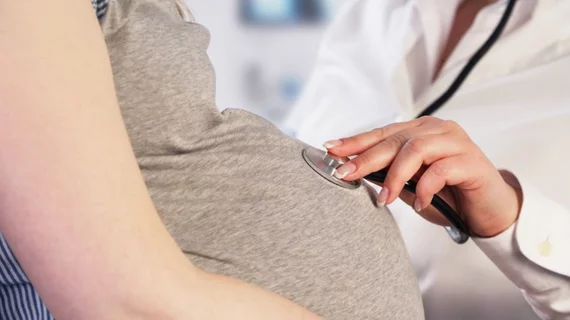A large-scale Canadian study has confirmed again that the COVID-19 mRNA vaccines are safe in pregnancy, with lower rates of health events post vaccination.
The findings were published in The Lancet Infectious Diseases. The study specifically looked at significant health events among pregnant females after COVID-19 vaccination compared with unvaccinated pregnant controls and vaccination of non-pregnant individuals.
While other research has found the mRNA COVID-19 vaccines are safe for pregnant people, the latest study confirms that pregnant people actually had fewer health events following vaccination. For instance, 7.3% of pregnant women in the study experienced health events requiring time off of work or school or needing medical attention, compared to 11.3% of vaccinated non-pregnant women.
The study, from the The Canadian National Vaccine Safety (CANVAS) Network and conducted by researchers from BC Children’s Hospital Research Institute in Vancouver, looked at pregnant and non-pregnant females aged 15–49 years. Pregnant women have been disproportionately impacted by COVID-19 as it can cause higher risk of severe disease, as well as increased risk of hospital admission, compared to non-pregnant individuals. Pregnant individuals with severe COVID-19 infection also can have increased risk of adverse pregnancy outcomes, such as hypertension, pre-eclampsia, impaired fetal growth and preterm birth.
Vaccinated participants were asked to self-report any health events during the seven days following each dose of COVID-19 vaccine, and the unvaccinated pregnant control group was asked to record any health problems over the seven days before they filled out the survey. A whopping 1911,360 women completed the first dose survey, and 94,937 completed the second dose survey.
Since COVID-19 vaccines have become available at the end of 2020, various health groups have supported vaccination for pregnant individuals. The Canadian study is one of the first to look at side effects of vaccination in a group of vaccinated pregnant women compared to an unvaccinated pregnant group and a vaccinated non-pregnant group.
“In the early stages of the COVID-19 vaccine rollout there was low vaccine uptake among pregnant people due to concerns about data availability and vaccine safety,” first author Manish Sadarangani, PhD, from the British Columbia Children's Hospital Research Institute, said in a statement. “There still is lower than average uptake among non-pregnant women of reproductive age. Large, observational studies like ours are crucial for proper understanding of the rates of adverse health events in pregnant women after different doses of COVID-19 vaccination.”
The findings could help pregnant women understand what to expect upon receiving COVID-19 vaccines.
Among pregnant women who reported a health event after vaccination, the most common impacts were a general feeling of being unwell, headache/migraine and respiratory tract infection. Serious health events were rare in both vaccinated and unvaccinated groups. The most frequently reported adverse pregnancy outcome with no significant difference between the rates of vaccinated and unvaccinated women was miscarriage/stillbirth. Just 2.1% of unvaccinated pregnant women and 1.5% of vaccinated pregnant women experience a stillbirth or miscarriage within seven days after dose one of any mRNA vaccine.
Researchers noted that the lower rate of significant adverse events following immunization among pregnant people “is important.”
“The lower rate of significant health events amongst vaccinated pregnant people, compared with vaccinated non-pregnant individuals, is unexpected and requires more research,” senior author Julie Bettinger, PhD, said in a statement. “Previous studies on other vaccines in pregnant women have mostly reported no significant differences in health events between pregnant and non-pregnant women or have found higher rates in pregnancy. Further studies of non-COVID-19 mRNA vaccines are required to identify if the reduced side effects observed in pregnant people in this study is a feature of the mRNA vaccine platform, or of these specific vaccines.”

